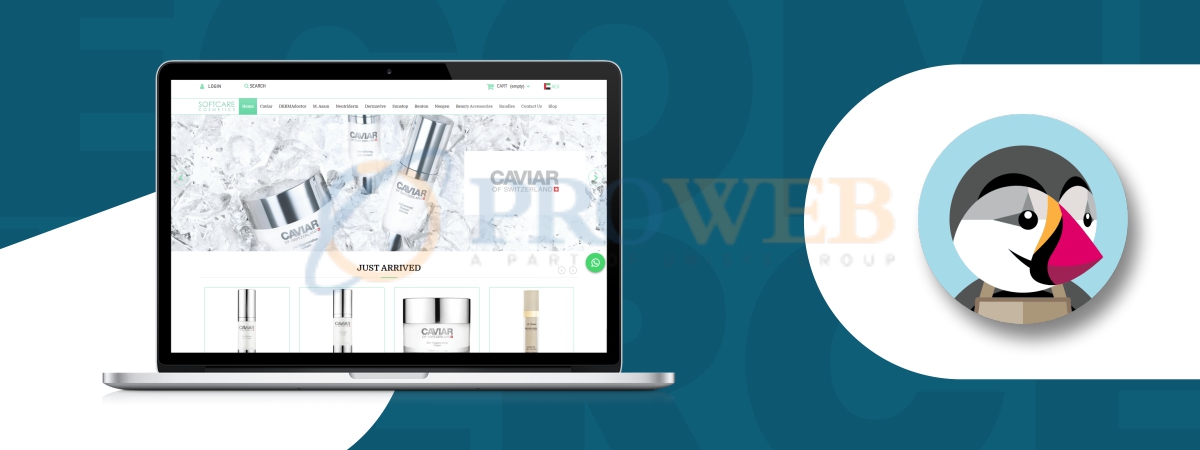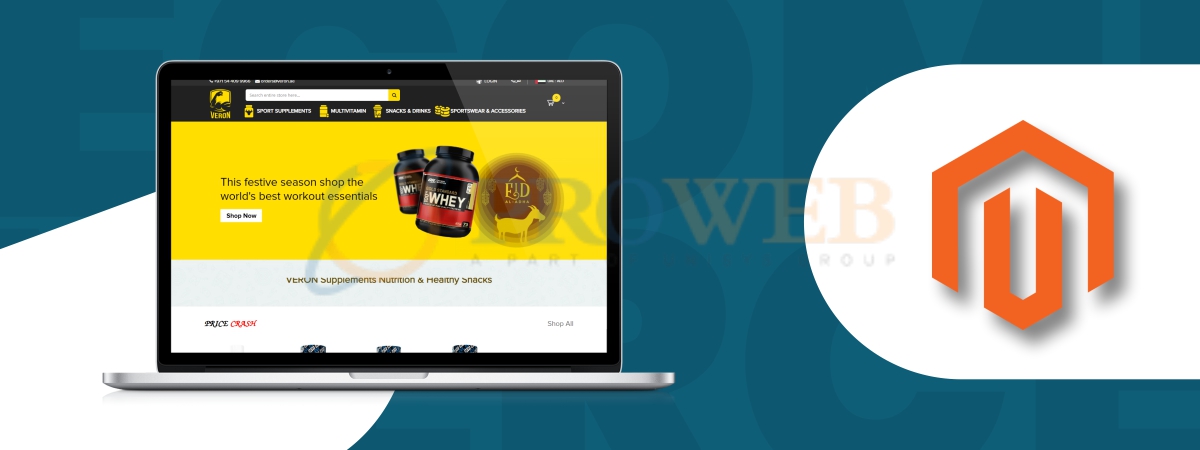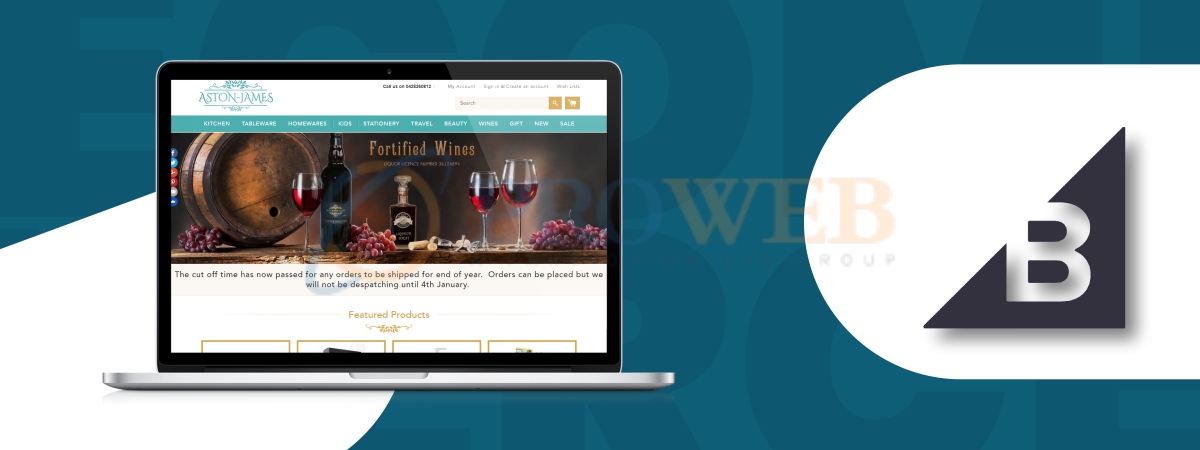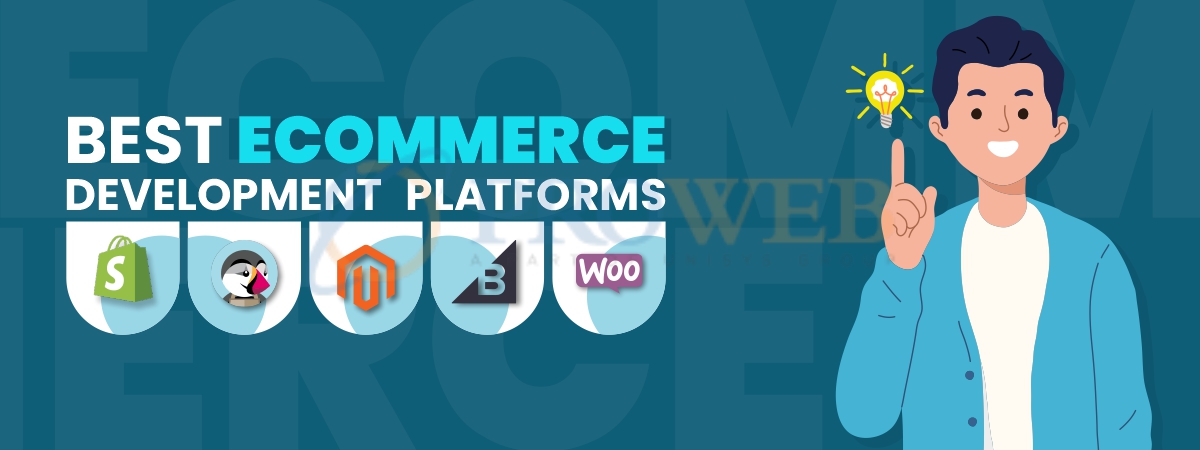Posted By : Admin
Date : January 06, 2021
Best Ecommerce Development Platforms
Ecommerce is one of the leading yet conventional strategies that are timelessly increasing revenues multi-folds for most businesses. In the new normal, companies have also adapted to the concept of Ecommerce solutions. Be it a small or a large enterprise, an Ecommerce platform has become mandatory in the tech-savvy generation, where customers are always in front of screens. However, with a fruitful method to enhance your sales(through an ecommerce platform ) comes the responsibility and costs of building one. With numerous options available to confuse you, it is a challenge to select the best ecommerce platform for your company. Here are the top 5 Ecommerce development platforms with a sorted list of pros and cons to help you find the most suitable one easily.
Shopify
Shopify is one of the best platforms for sales. If you rely on Facebook Ads or Social Media Marketing – this is the best option. Shopify is better in numerous areas over BigCommerce, or other platforms, such as post-purchase 1-click upsells, marketing tool integrations, etc. It’s straightforward to establish an online store with Shopify’s user-friendly drag and drop interface. Even the amateurs in website development get the idea of its usage within a few minutes.
Having said that, if you wish to get a full-fledged Ecommerce store with fully-functional inventory, sales, analysis model, marketing, SEO, you would want to get the help of a Shopify Expert. As easy as it sounds to operate and start a Shopify ecommerce store, it is difficult to make your store stand out among many others already in competition.
Pros
- Blazing fast load time
- Easy setup
- Lots of accredited partners or Shopify Experts to help you
- 1-Click sales
- Allows various channel and social merchandising
- Exceptional themes with diverse designs
Cons
- Ranked low in SEO in studies.
- Customization of the checkout process is cumbersome
- Apps can supplement up and become expensive
- Requires an expert for advanced peculiarity
Prestashop

PrestaShop is a cloud-hosted and open-source platform that provides an overall finish. Open Source and free are the words that attract both developers and business people; PrestaShop Ready is what you have to pay for most of the features. Besides the freely available downloadable version, there is an additional cost for an SSL certificate, web hosting, and extra modules to build your shop. With PrestaShop, if CSS, HTML, and PHP terms are alien to you, you’ll probably have to hire a developer. Nonetheless, the open-code provides expanded integration with payment gateways, couriers, accounting, ERP, warehouses, and more.
In the beginning, you are provided access to the 16 days trial without paying. It appears with an SSL certification. You may opt to pay straight as well. Note that you won’t have drag and drop customization functionality available in the free themes available to you in the admin panel.
Pros
- Apps/integrations possible
- Powerful SEO
- Open-source, highly flexible
- Comprehensive and reachable support
Cons
- Slower compared to other providers
- Add-ons can be costly
- Confined third-party marketing alliances
- Developer skill required to make changes
- No multichannel support on the hosted version
Magento

Magento is a trust-worthy choice if you want heavy customization and a full-fledged innovative yet personal store with your essence. Coding is an integral component of the ensemble. With Magento, you need a developer unless you hone the skills yourself.
A large portion of Magento is the community. Developers are ready to work on your shop for a price or answer your questions candidly. There’s additionally a marketplace to prepare extensions and themes to enhance your platform’s utility.
Magento’s most utilized free, paid level is available for enterprise ecommerce or large businesses. It implies costly. But it is not much for enterprises as features like recurring payments, discounts, SEO, content adjustment, membership support, unlimited outcomes, etc., come with it!
Pros
- Strong and feature-rich
- Effective SEO
- 1-Click merchandising
- Clusters of users and community
- Scalable and extremely customizable
- Adjustable in determining the software hosting
Cons
- Costly themes.
- Readily Slowed Down
- Obliges Development Skills
- Virtually no assistance.
- Requires relatively large space and memory to function well
BigCommerce

BigCommerce is the most useful ecommerce program. It has a robust search engine, which makes it perfect for more significant retail trademarks. It makes an excellent choice for newcomers or startups for an ideal online presence. Its convenient tools help it become a perfect choice for each industry and support the development in easy stages.
The easy-to-use interface enables you to customize your ecommerce shop without knowing even primary coding languages by just selecting a template that could be chosen according to the kind of products you sell or services you offer. It was specifically designed for people without high web development skills to create a shop. It also provides tech-savvy people to alter and personalize the HTML and CSS to give the entire website a unique look with the essence of creativity. Some additional APIs like checkout systems, unlimited bandwidth, gift cards, and expert recording are included in its paid versions.
Pros
- Adaptable and scalable
- Exceeds with multichannel selling
- Powerful SEO Performance
- Appealing Theme Designs
Cons
- Inconsistent speeds in continuous studies
- It gets costly for high capacity shops
- Cart abandonment is not included in the entry plan
- No 1-click Trading/Upsells
WooCommerce

WooCommerce is the biggest single platform to drive ecommerce and subsidiary sites beneath one shelter. However, due to its integration with WordPress to make a website and Ecommerce store, developers sometimes opt-out of it. As far as sales are concerned, BigCommerce and Shopify will give you a better edge.
Nevertheless, there are extensions accessible for integrating social media, payment gateways, 1-click selling, email marketing, shipping, etc.
WooCommerce has been recorded as slow to respond when it comes to scalability in a business. It implies that as you get more customers and add enormous products, your ecommerce website might slow down bit-by-bit.
Pros
- Great SEO integration(Thanks to WordPress)
- 1 Click sales options available
- Extremely customizable
- Several marketing opportunities and integrations
Cons
- Reliable hosting can be costly
- Troubleshooting is tricky as you will have to struggle to find if a problem with WordPress or WooCommerce.
- Virtually zero upkeep
- Extensions are required for simple stuff

While you struggle with selecting the best platform for your business model, remember that Ecommerce is becoming a necessity in this era. You have to take this challenge of finding a suitable platform. However, always be assured that experts are still reachable when in doubt. It is best to consult an Ecommerce developer as soon as you decide the transition to Ecommerce solutions.








